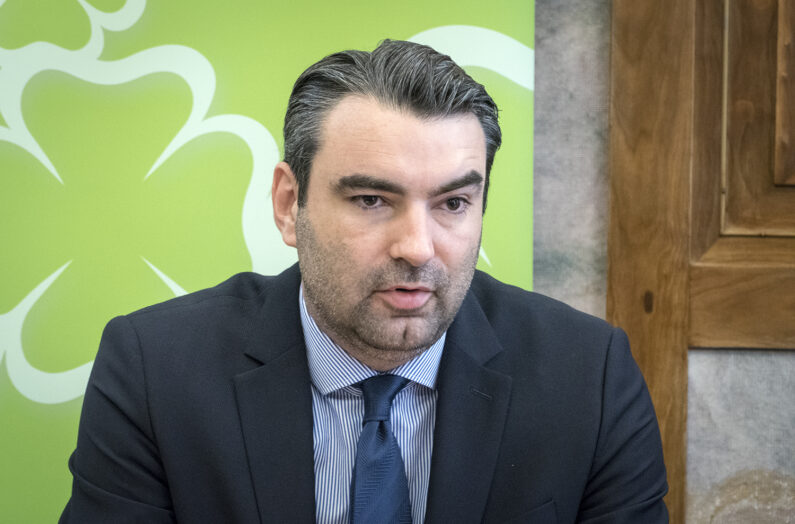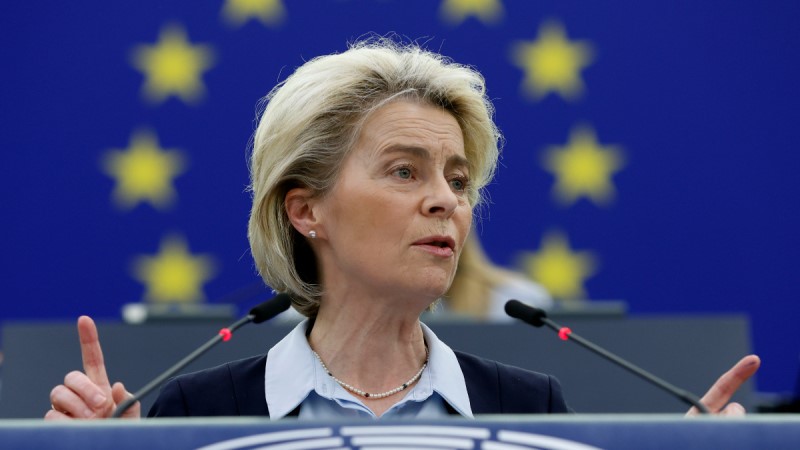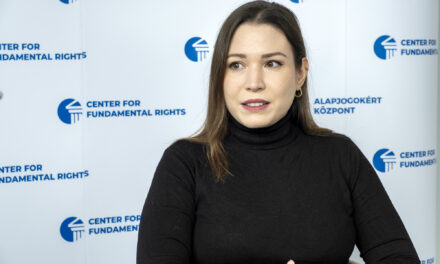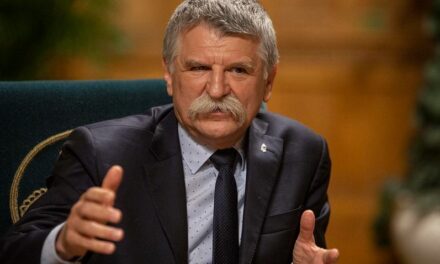According to many, it is distasteful that while Brussels plans to provide immediate, contract-free aid of HUF 18 billion to help a country that is not a member of the European Union, it is doing everything it can to one of its members to withhold from it, on ideological grounds, the resources that, based on the European Union treaties they deserve it, said jr. Zoltán Lomnici, legal expert of the Századvég Foundation, in an interview with Origo. The constitutional lawyer spoke about the situation in Ukraine, the EU resources going to Hungary and what we can expect in the coming period.
It can certainly be seen that there are many interests in the background of the Brussels policy, Lomnici said, but based on the actions it can only be assumed which one has priority. For example, we know and directly feel that Hungary is almost under European fire because of the perceived violation of the rule of law criteria. We also feel that European energy security, which serves our own interests, as well as food prices that are affordable for everyone, have been thrown away by Brussels to support the Ukrainian-Russian war on the Ukrainian side. First with sanctions against Russia, later with arms shipments, and after their ineligibility for support, Brussels provides financial assistance, first from its own pocket and then from the pockets of European tax-paying citizens. One of the numerous and extremely uncomfortable questions arising in this case is that
DO EUROPEAN STATES AND TAXPAYING CITIZENS REALLY WANT TO SUPPORT THIS CURRENTLY IMPOSSIBLE WAR AT THE DETRIMENT OF THEIR OWN UTILITIES AND DINNERS, OR SHOULD THEY BE WORRIED ABOUT THEIR OWN SECURITY INSTEAD OF THE SECURITY OF UKRAINE?

Zoltán Lomnici Jr./Photo: 2022plus
Despite all of this, Brussels insists on its Ukraine policy, and Ursula von der Leyen wants another package worth 18 billion euros, now drawn up, or rather paid for, by the finance ministers of the member states. This amount - in the absence of HUF 100 billion - is almost the same as the value of the military aid announced by the American president in mid-October. It would be difficult to determine from so much information whether the leadership in Brussels is conducting a bidding war with the United States in terms of subsidies to Ukraine, but the fact is that somehow it just wants to compete with it, without revealing the real reason, only citing the sanctions - misadvertised - to his success. Numerous Hungarian and foreign opinion polls confirm that the vast majority wants to end the Russian-Ukrainian war, the economic sanctions imposed are not nearly as beneficial as the number of kilometers the Ukrainian troops advance behind the retreating Russian troops, and this the desire to support will end when the pockets of the European Union, the member states and the tax-paying citizens are empty.
WE ALREADY FEEL THAT THE TAXPAYERS SOMETIMES NEED MEDIEVAL SAVINGS, THE MEMBER STATES ARE NOT SUCCESSFUL TO RECALL THE INVESTMENTS ANNOUNCED SO FAR, AND ALREADY THE EUROPEAN UNION IS ALREADY ASKING FOR MONEY FROM THE MEMBER STATES.
Origo: To date, Hungary has not had access to the recovery fund, which is otherwise its right as a subject, and the resources of the EU cycle until 2027. Can it be said that the reason for this is that Brussels wants to give the money owed to the Hungarians to Ukraine?
These funds are not "donations" - as people are led to believe in the West today, and as the left-wing media and the army of NGOs that always serve the Brussels elite want to portray the situation at home - but amounts that belong to our country, such as goods, labor , in addition to the markets opened for the free movement of capital and services, they also belong to the country for other reasons. It is a matter of detail how the EU intends to finance the 18 billion euros of aid it wants to provide to Ukraine - Ursula von der Leyen asked the finance ministers to develop corresponding mechanisms - however, it is certain that their "debt" to our country the reason is only political, as for example several statements from within the government could be heard that spoke of a mere lack of political will in the issue of signing the necessary agreements, and Tibor Navracsics, the minister responsible for regional development and the use of EU funds, also stated that the results of the negotiations considering that the arrival of the funds in December is already realistic.
Source and full article: Origo
Featured image: MTI/AP












